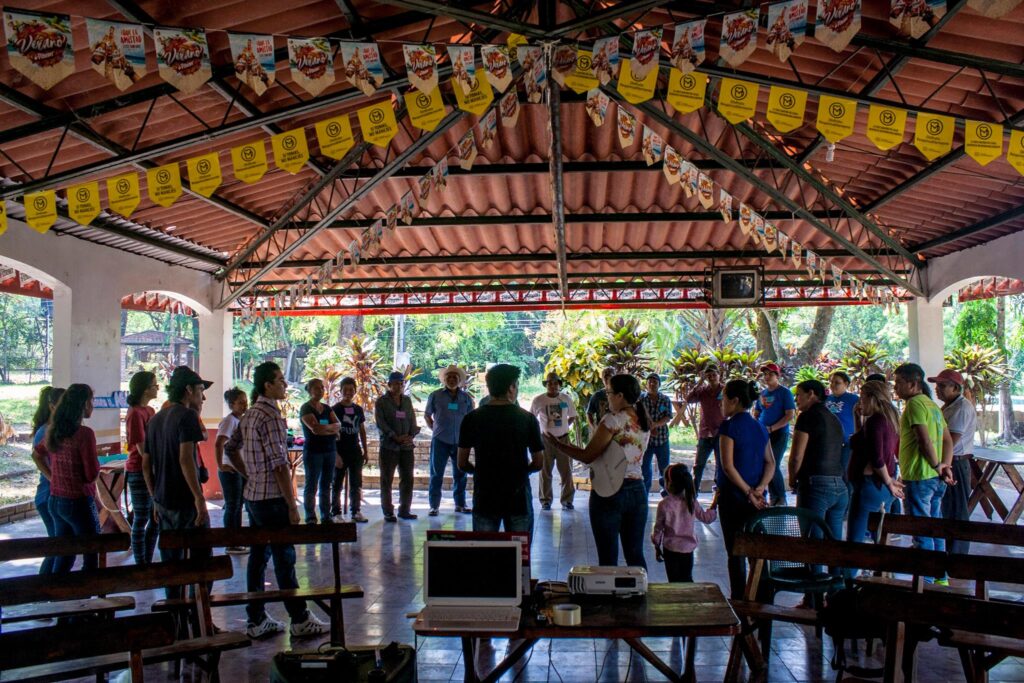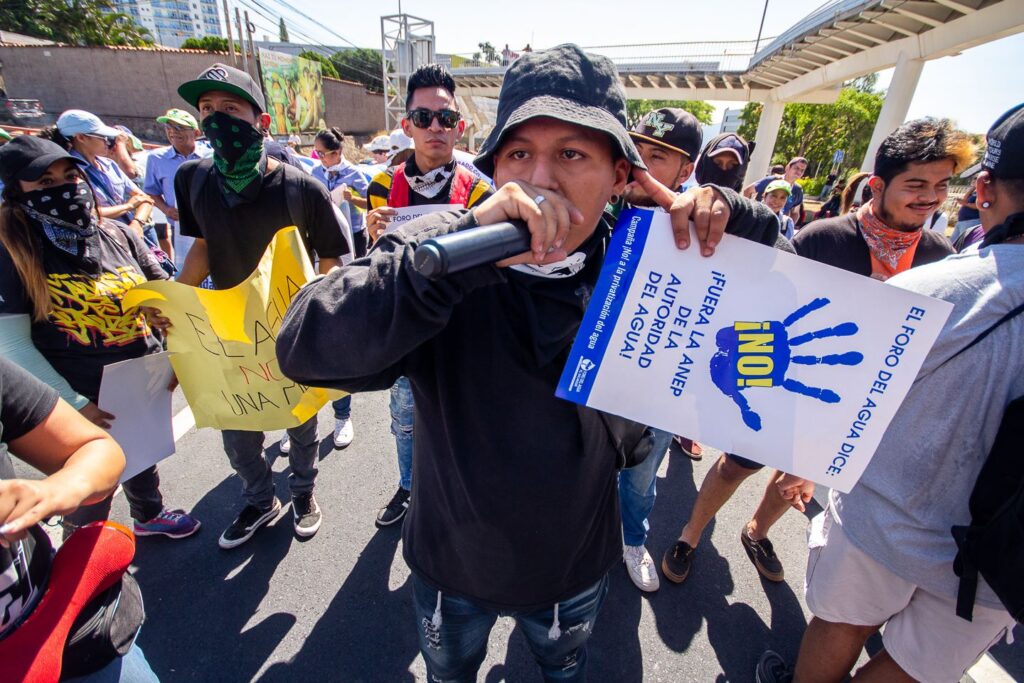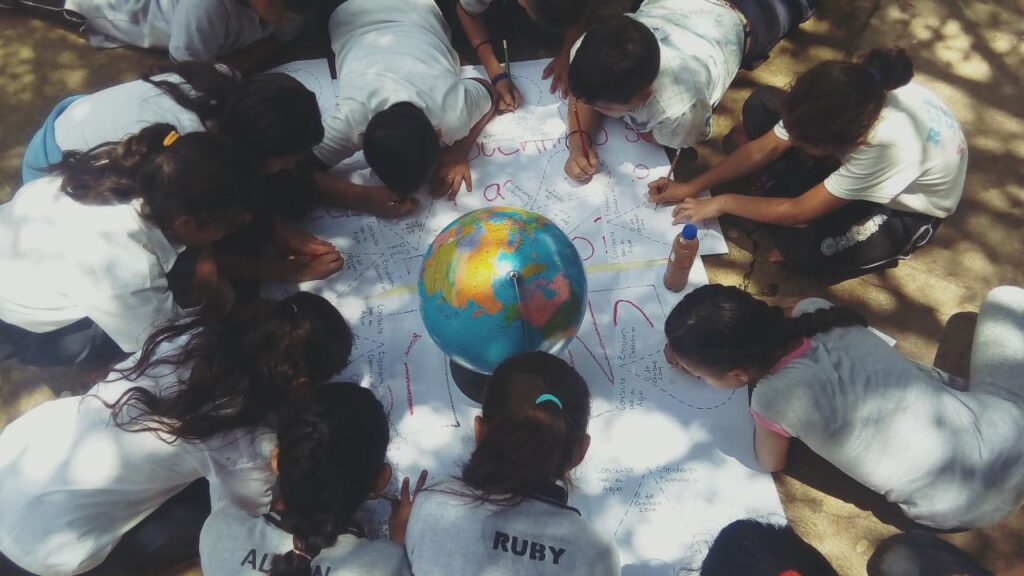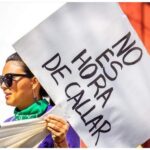Minds of the Movement
An ICNC blog on the people and power of civil resistance
by Yoselyn Guardado ChicasJune 21, 2023
Esta entrada de blog también está disponible en español (enlace).
A powerful movement for the defense and protection of water has been brewing in El Salvador for decades. Based in Suchitoto, in the department of Cuscatlán, this nonviolent struggle has many components: grassroots community organizing, large demonstrations, popular education, and hip hop music production—all typically led by peasant communities with strong women’s participation. The message of the struggle is that water is not for sale.
To push for recognition of water as a right, artistic resistance and other extra-institutional actions have been necessary. Starting in 2019, I myself helped develop a popular consultation, a mechanism of citizen participation that leverages pressure on those who are trying to take control of water, a human right.
Yet beyond these actions, Suchitoto already has impressive and enviable alternative solutions for community water management, because water is seen as a common good and part of community life. Communities throughout the municipality’s history have created, managed and administered their own water systems, which supply the vast majority of the rural population. These alternative processes have ensured a just and peaceful distribution of water as a resource over the decades, but this system is now under threat.

A Suchitoto community gathering. Credit: Suchitoto dice Sí al Derecho Humano al Agua.
Challenges and successes of the struggle
On July 2, 2007, the population mobilized to reject former president Elías Antonio Sac’s ”policy of decentralization of public services,” which carried a threat of water privatization. The government repressed the mobilization. Agents of the Order Maintenance Unit (UMO by its Spanish acronym) and the Elite Assault Units of the National Civil Police (PNC) attacked the nonviolent protesters. The Human Rights Ombudsman at the time, Beatrice de Carrillo described the repression as "characterized by the abuse of force against the civilian population”.
According to ARPAS, as a result of the repressive actions, more than 40 people were injured and 14 arrested for the alleged crimes of illicit association, public disorder and acts of terrorism. This extremely violent episode was unprecedented in the history of the usually quiet mountain town. However, the communities, women's organizations and social organizations maintained their course and quickly organized another protest, full of strategy and ingenuity. From human barricades to boats full of women shouting slogans such as "We don't want privatization”, clearly the repression had failed to scare or demobilize the population.
In 2021, a local law for water protection (Ordenanza Municipal para la Protección y Conservación del Recurso Hídrico del Municipio de Suchitoto) was passed, and it was built together with the community. The law stipulated that water is a common good and a strategic resource; therefore it should be cared for and protected. This was a huge victory for the movement on many levels, especially considering it was the first law of its kind in the country. Building the law was a long and complex advocacy process, and the community’s standing all along was reinforced by the legitimacy that their nonviolent actions lent to them.

A hip hop artist freestyles during a march for water rights in 2019. Credit: Plataforma Global El Salvador.
A glimpse of our tactics
The 2019 popular consultation on water management and water rights created significant momentum for developing new strategies and approaches. We began raising awareness among children of the 45 schools in the municipality, with popular and playful methodologies. The strategy was cultivating children as advocates for their families. Have you ever heard the saying "Children are like sponges"? Because that was the idea: they absorbed all the information and deposited it in their family environments, as a cascade effect. This advocacy work with children contributed to the awakening of conscience for many adults who then joined the movement for water rights.
Hip hop was another tactic used to reach young people who were not always present in the community assemblies. Local hip hop artists’ lyrics proposed a narrative that evoked change and reminded us that resistance is happening in the streets and neighborhoods. The water crisis is national and is a form of structural violence; the lyrics bring this idea to the fore and expose the absurdity of this violence (listen to some songs here). As one hip hop song goes:
Alzamos la voz con barras full de arte Cuiden el agua de acá, no busquen la que hay en marte
El sistema de hoy me resulta increíble “is way easier getting beers” Que tomar agua potable
Así que listen me y que suene duro el techo I wanna make you feel porque el agua es un derecho (bis)
We raise our voices with our supporters full of art, take care of the water we have here, don't look for the water on Mars.
The current system is incredible to me [that it] "is way easier getting beers" than drinking clean water
So listen to me and let the roof ring hard I wanna make you feel because water is a right
These lyrics point out the irony of privatizing water, especially in a community that has been successfully managing its own water for decades.
Suchitoto is called the capital of culture, but it has traditionally been European art usually aimed to please foreigners and visitors from other places. So opening the doors to hip hop helped broaden the movement’s horizons by bringing together the peasant struggle and street art under the same vision: the right to water for all. Although it is not the only art form we use, hip hop was born in marginalized communities. Like peasant communities, they exist on the social periphery when it comes to making political decisions, so bringing them together amplifies their voices.

"Children are a sponge..." Suchitoto, September 2019. Credit: Suchitoto dice Sí al Derecho Humano al Agua.
If a drop is constant, it can break stone
Many people in the world take water for granted. But for those of us who have physically carried water from the source to our homes to meet our basic needs, it is a duty and almost an obligation to preserve our sources. It is part of our history. The communities of Suchitoto are more than clear about this. Our awareness stems from analyzing our conditions and our relationship to water. Unlike many people in the world, we ask ourselves, where does the water I consume come from? We must all ask ourselves this question, since water does not come from the faucet we have in our homes. (And even for the few people who do ask themselves this question, few people have an accurate answer.)
The symbol of a drop of water has been key throughout movement. It has been used on banners, in slogans shouted on the streets, and as a metaphor to say that if a drop is constant, it can break stone, like the community resistance in Suchitoto.
A true movement identity has been forged and affirmed over the years, with each new organization, allied group, child, peasant, woman, and young artist from the streets of San Salvador. All together, they are making a splash.
We will continue to defend our right to water, and even though there are new threats, our community roots run deep and our struggle will never run dry.

Yoselyn Guardado Chicas
Yoselyn Guardado Chicas is a feminist activist from Suchitoto, El Salvador. She studied social work. From a very young age, she has been a community leader, defending the rights of peasant communities in Suchitoto and women’s rights at the local and national levels. She is currently part of the Feminist Collective for Local Development.
Yoselyn Guardado Chicas es una activista feminista de Suchitoto, El Salvador. Estudió trabajo social y desde muy pequeña ha sido lideresa comunitaria, defendiendo derechos de las comunidades campesinas en suchitoto y de las mujeres a nivel local y nacional. Actualmente es parte de el equipo de la Colectiva Feminista para el Desarrollo local.
Read More